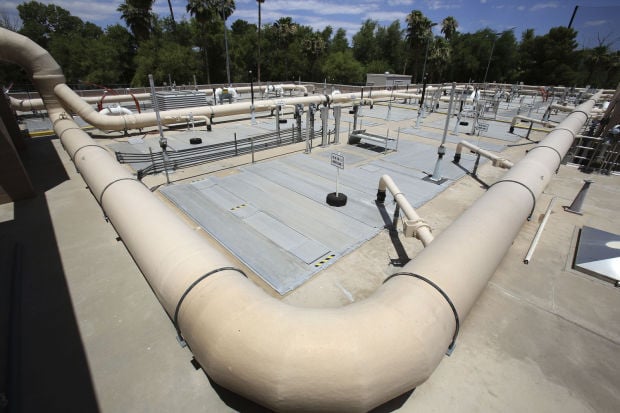With revenues declining and operating and debt-service costs projected to increase in coming years, the county finance department has recommended three 4 percent sewer rate hikes in the next three years.
However, the wastewater department’s advisory committee is advocating for approving just one for the time being and waiting on the findings of a study looking at ways to “equitably allocate the cost of providing service” before considering the other two.
The Pima County Board of Supervisors will consider that first hike at its regular Jan. 17 meeting.
The supervisors last approved rate hikes in 2013, when bills jumped 10 percent, which worked out to a roughly $3.33 monthly increase for the average residential customer. The supervisors shot down a recommended increase in 2015 with a 3-2 vote.
To pay for the massive Regional Optimization Master Plan, which cost nearly $700 million and included replacing of the aging Roger Road wastewater treatment plant and major upgrades to another, annual rate increases of up to 25.5 percent were approved every year from fiscal year 2005 through FY 2014.
If approved, the first 4 percent hike would increase those monthly bills by another $1.63, according to county estimates. The average residential rate payer currently pays nearly $41 per month for just shy of 6,000 gallons, according to the county’s website.
A 2013 study commissioned by the San Antonio Water System shows that Tucson residents pay close to the average monthly bill of the country’s 50 largest cities.
Amber Smith, the advisory committee’s chair, said she and her colleagues went “line by line through the department’s budget looking for opportunities for cuts,” adding: “We’re very comfortable with the projections they’ve put together.”
Without all three hikes in the near future, finance and risk management Director Keith Dommer said recently that wastewater finances could start to look “unhealthy.”
Assuming no increase is approved, county projections show cash balances would steadily decline in coming years and the department’s debt-service ratio, which measures how much money is available to address recurring debt payments and is used by bond-rating agencies to assess financial health, would fall below 1, meaning wastewater would be “considered insufficient in our revenue-generating abilities,” Dommer said.
The county also has contractual obligations to current holders of debt to maintain debt-service ratios above certain levels, which could become difficult without increases in revenue, according to Dommer.
“In just a few years, without changes in our rate structure, we will be in jeopardy of not complying with our contractual requirements with the people who have lent us money,” he said.
That could lead to legal action requiring the Board of Supervisors to raise rates, or courts taking control of the department away from the board and turning it over to a trustee.
“We’re not going to let something like that happen,” Supervisor Richard Elías said.
However, while acknowledging improvements in the local economy, he said, “I’m not so sure that the increase in charges are acceptable to ratepayers right now.”
“I’m sure the situation has become more difficult (at the wastewater department),” he added. “But I just want to be very careful with it.”
Three other supervisors did not return calls for comment. As of Tuesday, no public comments, either in favor or against the rate increase, have been received by finance and risk management, according to Dommer.
Written comments can still be mailed to Dommer at the Pima County Finance and Risk Management Department, 130 West Congress St., Sixth Floor, Tucson, AZ 85701.
A copy of the wastewater department’s 2016 financial plan, which includes a discussion of the proposed rate increases, can be found at tinyurl.com/jbdllvj





